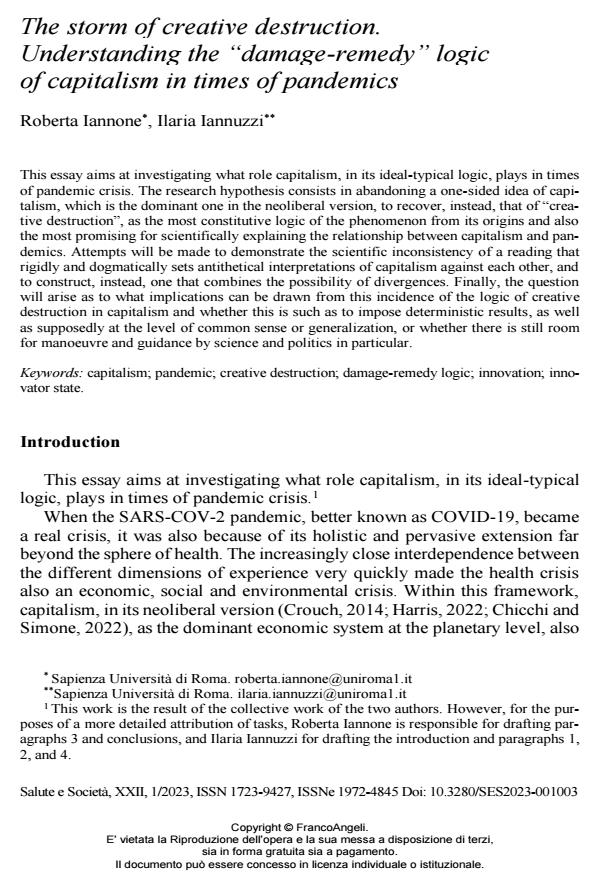The storm of creative destruction. Understanding the "damage-remedy" logic of capitalism in times of pandemics
Journal title SALUTE E SOCIETÀ
Author/s Roberta Iannone, Ilaria Iannuzzi
Publishing Year 2023 Issue 2023/1
Language English Pages 18 P. 27-44 File size 401 KB
DOI 10.3280/SES2023-001003
DOI is like a bar code for intellectual property: to have more infomation
click here
Below, you can see the article first page
If you want to buy this article in PDF format, you can do it, following the instructions to buy download credits

FrancoAngeli is member of Publishers International Linking Association, Inc (PILA), a not-for-profit association which run the CrossRef service enabling links to and from online scholarly content.
This essay aims at investigating what role capitalism, in its ideal-typical logic, plays in times of pandemic crisis. The research hypothesis consists in abandoning a one-sided idea of capital-ism, which is the dominant one in the neoliberal version, to recover, instead, that of “creative destruction”, as the most constitutive logic of the phenomenon from its origins and also the most promising for scientifically explaining the relationship between capitalism and pandem-ics. Attempts will be made to demonstrate the scientific inconsistency of a reading that rigidly and dogmatically sets antithetical interpretations of capitalism against each other, and to con-struct, instead, one that combines the possibility of divergences. Finally, the question will arise as to what implications can be drawn from this incidence of the logic of creative destruction in capitalism and whether this is such as to impose deterministic results, as well as supposedly at the level of common sense or generalization, or whether there is still room for manoeuvre and guidance by science and politics in particular.
Keywords: capitalism; pandemic; creative destruction; damage-remedy logic; innovation; inno-vator state.
Roberta Iannone, Ilaria Iannuzzi, The storm of creative destruction. Understanding the "damage-remedy" logic of capitalism in times of pandemics in "SALUTE E SOCIETÀ" 1/2023, pp 27-44, DOI: 10.3280/SES2023-001003